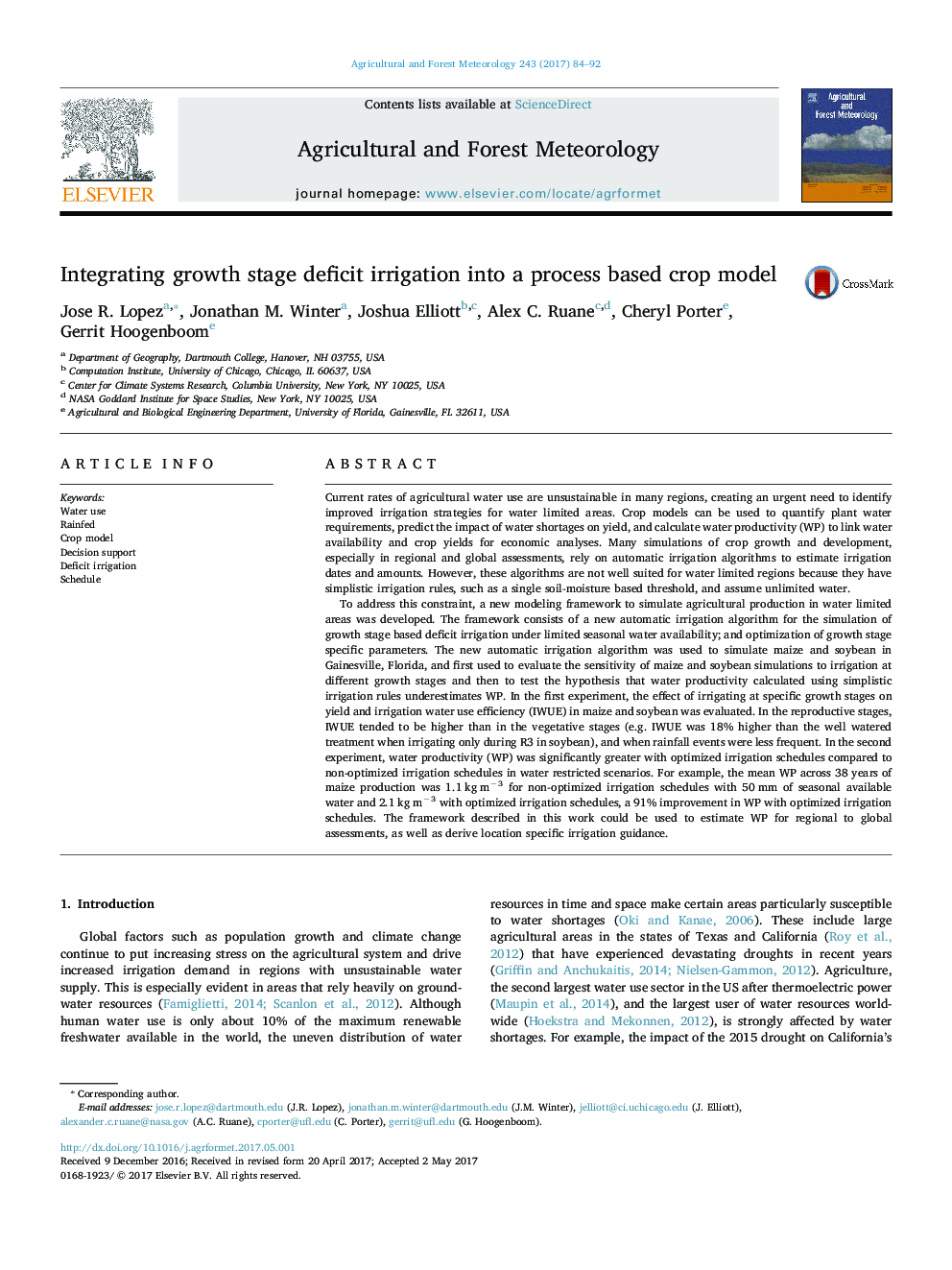| Article ID | Journal | Published Year | Pages | File Type |
|---|---|---|---|---|
| 4758914 | Agricultural and Forest Meteorology | 2017 | 9 Pages |
Abstract
To address this constraint, a new modeling framework to simulate agricultural production in water limited areas was developed. The framework consists of a new automatic irrigation algorithm for the simulation of growth stage based deficit irrigation under limited seasonal water availability; and optimization of growth stage specific parameters. The new automatic irrigation algorithm was used to simulate maize and soybean in Gainesville, Florida, and first used to evaluate the sensitivity of maize and soybean simulations to irrigation at different growth stages and then to test the hypothesis that water productivity calculated using simplistic irrigation rules underestimates WP. In the first experiment, the effect of irrigating at specific growth stages on yield and irrigation water use efficiency (IWUE) in maize and soybean was evaluated. In the reproductive stages, IWUE tended to be higher than in the vegetative stages (e.g. IWUE was 18% higher than the well watered treatment when irrigating only during R3 in soybean), and when rainfall events were less frequent. In the second experiment, water productivity (WP) was significantly greater with optimized irrigation schedules compared to non-optimized irrigation schedules in water restricted scenarios. For example, the mean WP across 38 years of maize production was 1.1 kg mâ3 for non-optimized irrigation schedules with 50 mm of seasonal available water and 2.1 kg mâ3 with optimized irrigation schedules, a 91% improvement in WP with optimized irrigation schedules. The framework described in this work could be used to estimate WP for regional to global assessments, as well as derive location specific irrigation guidance.
Related Topics
Physical Sciences and Engineering
Earth and Planetary Sciences
Atmospheric Science
Authors
Jose R. Lopez, Jonathan M. Winter, Joshua Elliott, Alex C. Ruane, Cheryl Porter, Gerrit Hoogenboom,
